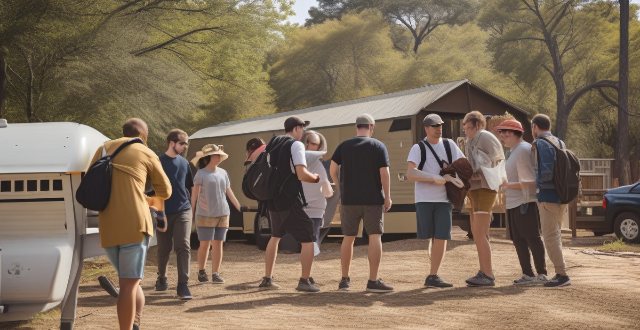Sports play a significant role in promoting cultural diversity and inclusion by breaking down barriers, educating about different cultures, building communities, and contributing positively to economic development.

The Role of Sports in Promoting Cultural Diversity and Inclusion
Sports have long been recognized as a universal language that transcends cultural, linguistic, and socio-economic barriers. When harnessed effectively, sports can play a significant role in promoting cultural diversity and inclusion. Here's how:
Breaking Down Barriers
Cultural Exchange
- Fostering Understanding: By bringing people from different backgrounds together, sports facilitate the exchange of ideas and practices. This leads to a greater understanding and appreciation of diverse cultures.
- Mutual Respect: Competing in a fair and regulated environment encourages mutual respect among participants, irrespective of their cultural differences.
Inclusivity
- Equal Opportunities: Sports organizations are increasingly working towards providing equal opportunities for athletes regardless of their gender, race, or disability.
- Accessibility: Parasports and other adaptive forms of physical activities ensure that individuals with disabilities can participate and showcase their skills.
Education and Awareness
Promoting Equality
- Anti-Discrimination Campaigns: Many sports organizations run campaigns against discrimination, using the platform of sports to educate about equality and respect.
- Role Models: Diverse athletes serve as role models, inspiring others to overcome societal barriers and pursue their passions in sports.
Cultural Education
- Pre-Game Ceremonies: Events like the Olympics use opening ceremonies to celebrate the cultural heritage of the participating nations.
- Athlete Biographies: Media coverage often includes stories about athletes’ backgrounds, providing a window into different cultures for the audience.
Community Building
Grassroots Programs
- Local Sports Clubs: These clubs often reflect the cultural makeup of their communities and promote interaction among diverse groups.
- Youth Development: Youth sports programs aim to include children from all backgrounds, helping them develop a sense of belonging and teamwork.
International Events
- Multicultural Spectacles: Major sporting events like the World Cup and the Olympics bring together athletes and fans from around the globe, celebrating multiculturalism.
- Urban Development: Hosting major sports events can revitalize urban areas and foster community pride and unity.
Economic Impact
Tourism and Jobs
- Event Hosting: The hosting of international sports events can boost local economies through tourism and create job opportunities across various sectors.
- Cultural Showcase: These events offer a platform for showcasing local culture and traditions to an international audience.
Branding and Marketing
- Culturally Diverse Brands: Sports brands increasingly feature diverse athletes in their marketing campaigns, reflecting a commitment to inclusivity.
- Sponsorship Deals: Athletes from different cultures securing sponsorship deals helps in promoting cultural diversity at a commercial level.
In conclusion, sports serve as a powerful tool for promoting cultural diversity and inclusion by breaking down barriers, educating about different cultures, building communities, and contributing positively to economic development. Through sports, we can foster a more inclusive society where everyone feels valued and respected, regardless of their background.